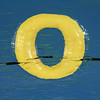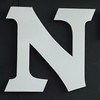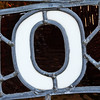"Picture Book"
Although I am nowhere near my little brother’s record number of employers (which must surely be nearing triple digits by now), I have held at least a handful of jobs in as many different industries.
I’ve worked high-stress, low-stress, no-stress, clean-up-this-mess jobs, but few of them outside of fast food have been set up in a way that offers a clear workday schedule; and anyone who knows me should be aware of how highly I value adhering to a schedule and sticking to a pre-decided plan of action—although the “pre-decided” part usually doesn’t actually scream “ACTION!!”
My current job is incredibly detail heavy and very structured—the latter of which necessity mandates, due to a daunting workload that would be otherwise unmanageable. When I think of how structured this job is (especially compared with some workplace “adventures” of the past), I turn into Gollum and start gushing about my structure. “My precious.”
 But, aside from keeping me from drowning in a sea of projects, I’ve discovered an added benefit: time to read. Every day around mid-day, I heat up my lunch, sequester myself and disappear into a book.
But, aside from keeping me from drowning in a sea of projects, I’ve discovered an added benefit: time to read. Every day around mid-day, I heat up my lunch, sequester myself and disappear into a book.
It helps me escape from the stress of the workday, and I can finally dig into the ever-growing mental list of books-to-read that I’ve been amassing for quite a few years.
I’ve always been a slow reader and would often get frustrated at the quick turnaround time necessary for school-related reading. When left to my own schedule, oddly enough, I’ve found that my reading times have picked up a little bit—probably because I’m not trying to capture meaningless details that I know will be on a pop quiz. In fact, I find that I have a better grasp on what I’ve read and can analyze the material and pick up on the symbolism and underlying themes just as well on my own as I ever did in a classroom.
I have also found that my tastes in books are as divergent (or “disorganized”) as my musical preferences. In the last few months I’ve read, among others, early 20th century sci-fi (William Hope Hodgson), a thinly veiled attempt at satire disguised as music criticism (Chuck Klosterman), a 21st century masterpiece (David Mitchell's Cloud Atlas), disposable pulp trash (Chuck Barris) and a book that I’m absolutely glad that no one asked me about while reading it in the breakroom—Sound of the Beast: The Complete Headbanging History of Heavy Metal.
Whether they’ll (we’ll) admit it or not, readers look at non-readers with at least a little disdain. If someone asks you about the last great book you read, just lie. You could say that you believe the earth is flat. You could say that there is no such thing as a laundromat. You could say that there are no cats in America. You will still be looked at as less evolved if you say, rather blasé, “Oh I don’t read.”
You’ll look dumber than Dan “Do they speak Latin in Latin America?” Quayle.
Henry Rollins often says that one of the first questions he’ll ask a woman he’s interested in is not the usual get-to-know-you banter like, “Where are you from?” or “What do you do for a living?” Instead, he typically inquires about the most recent book that the woman read—usually coming up disappointed because it seems like fewer people are reading anything of substance these days... coughPeoplecough.
But, had he asked me about Sound of the Beast, I'm sure he would have been disappoinsted.
I’ve worked high-stress, low-stress, no-stress, clean-up-this-mess jobs, but few of them outside of fast food have been set up in a way that offers a clear workday schedule; and anyone who knows me should be aware of how highly I value adhering to a schedule and sticking to a pre-decided plan of action—although the “pre-decided” part usually doesn’t actually scream “ACTION!!”
My current job is incredibly detail heavy and very structured—the latter of which necessity mandates, due to a daunting workload that would be otherwise unmanageable. When I think of how structured this job is (especially compared with some workplace “adventures” of the past), I turn into Gollum and start gushing about my structure. “My precious.”
 But, aside from keeping me from drowning in a sea of projects, I’ve discovered an added benefit: time to read. Every day around mid-day, I heat up my lunch, sequester myself and disappear into a book.
But, aside from keeping me from drowning in a sea of projects, I’ve discovered an added benefit: time to read. Every day around mid-day, I heat up my lunch, sequester myself and disappear into a book.It helps me escape from the stress of the workday, and I can finally dig into the ever-growing mental list of books-to-read that I’ve been amassing for quite a few years.
I’ve always been a slow reader and would often get frustrated at the quick turnaround time necessary for school-related reading. When left to my own schedule, oddly enough, I’ve found that my reading times have picked up a little bit—probably because I’m not trying to capture meaningless details that I know will be on a pop quiz. In fact, I find that I have a better grasp on what I’ve read and can analyze the material and pick up on the symbolism and underlying themes just as well on my own as I ever did in a classroom.
I have also found that my tastes in books are as divergent (or “disorganized”) as my musical preferences. In the last few months I’ve read, among others, early 20th century sci-fi (William Hope Hodgson), a thinly veiled attempt at satire disguised as music criticism (Chuck Klosterman), a 21st century masterpiece (David Mitchell's Cloud Atlas), disposable pulp trash (Chuck Barris) and a book that I’m absolutely glad that no one asked me about while reading it in the breakroom—Sound of the Beast: The Complete Headbanging History of Heavy Metal.
Whether they’ll (we’ll) admit it or not, readers look at non-readers with at least a little disdain. If someone asks you about the last great book you read, just lie. You could say that you believe the earth is flat. You could say that there is no such thing as a laundromat. You could say that there are no cats in America. You will still be looked at as less evolved if you say, rather blasé, “Oh I don’t read.”
You’ll look dumber than Dan “Do they speak Latin in Latin America?” Quayle.
Henry Rollins often says that one of the first questions he’ll ask a woman he’s interested in is not the usual get-to-know-you banter like, “Where are you from?” or “What do you do for a living?” Instead, he typically inquires about the most recent book that the woman read—usually coming up disappointed because it seems like fewer people are reading anything of substance these days... coughPeoplecough.
But, had he asked me about Sound of the Beast, I'm sure he would have been disappoinsted.









